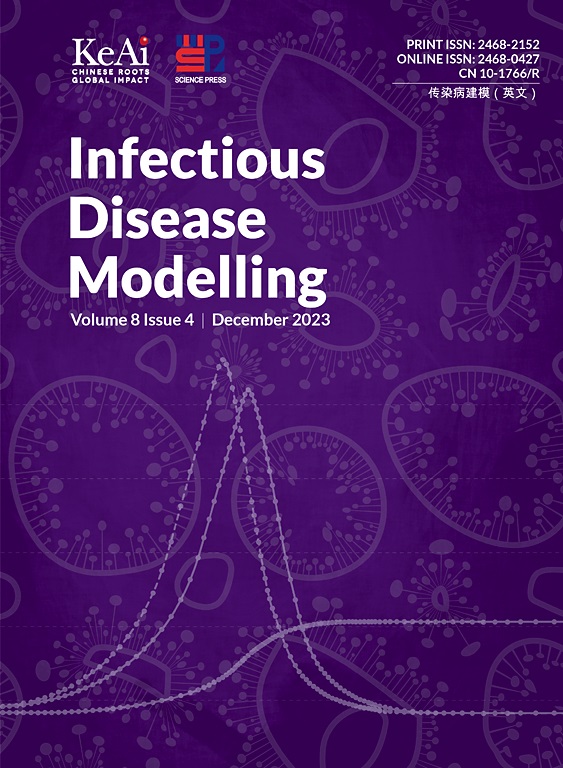Application of multiple linear regression model and long short-term memory with compartmental model to forecast dengue cases in Selangor, Malaysia based on climate variables
IF 2.5
3区 医学
Q1 Medicine
引用次数: 0
Abstract
Despite the implementation of various initiatives, dengue remains a significant public health concern in Malaysia. Given that dengue has no specific treatment, dengue prediction remains a useful early warning mechanism for timely and effective deployment of public health preventative measures. This study aims to develop a comprehensive approach for forecasting dengue cases in Selangor, Malaysia by incorporating climate variables. An ensemble of Multiple Linear Regression (MLR) model, Long Short-Term Memory (LSTM), and Susceptible-Infected mosquito vectors, Susceptible-Infected-Recovered human hosts (SI-SIR) model were used to establish a relation between climate variables (temperature, humidity, precipitation) and mosquito biting rate. Dengue incidence subject to climate variability can then be projected by SI-SIR model using the forecasted mosquito biting rate. The proposed approach outperformed three alternative approaches and expanded the temporal horizon of dengue prediction for Selangor with the ability to forecast approximately 60 weeks ahead with a Mean Absolute Percentage Error (MAPE) of 13.97 for the chosen prediction window before the implementation of the Movement Control Order (MCO) in Malaysia. Extended validation across subsequent periods also indicates relatively satisfactory forecasting performance (with MAPE ranging from 13.12 to 17.09). This research contributed to the field by introducing a novel framework for the prediction of dengue cases over an extended temporal range.
基于气候变量的多元线性回归模型和长短期记忆分区模型在马来西亚雪兰莪州登革热病例预测中的应用
尽管采取了各种措施,登革热仍然是马来西亚的一个重大公共卫生问题。鉴于登革热没有特效治疗方法,登革热预测仍然是一种有用的早期预警机制,有助于及时有效地部署公共卫生预防措施。本研究旨在结合气候变量,开发一种预测马来西亚雪兰莪州登革热病例的综合方法。研究采用了多重线性回归(MLR)模型、长短期记忆(LSTM)和易感-受感染蚊媒、易感-受感染-已恢复人类宿主(SI-SIR)模型的组合,以建立气候变量(温度、湿度、降水量)与蚊虫叮咬率之间的关系。然后,SI-SIR 模型可利用预测的蚊虫叮咬率预测受气候变异影响的登革热发病率。所提出的方法优于其他三种方法,并扩大了雪兰莪州登革热预测的时间范围,能够提前约 60 周进行预测,在马来西亚实施移动控制令(MCO)之前,所选预测窗口的平均绝对百分比误差(MAPE)为 13.97。对后续时段的扩展验证也显示出相对令人满意的预测性能(MAPE 在 13.12 到 17.09 之间)。这项研究通过引入一个新的框架来预测更大时间范围内的登革热病例,为该领域做出了贡献。
本文章由计算机程序翻译,如有差异,请以英文原文为准。
求助全文
约1分钟内获得全文
求助全文
来源期刊

Infectious Disease Modelling
Mathematics-Applied Mathematics
CiteScore
17.00
自引率
3.40%
发文量
73
审稿时长
17 weeks
期刊介绍:
Infectious Disease Modelling is an open access journal that undergoes peer-review. Its main objective is to facilitate research that combines mathematical modelling, retrieval and analysis of infection disease data, and public health decision support. The journal actively encourages original research that improves this interface, as well as review articles that highlight innovative methodologies relevant to data collection, informatics, and policy making in the field of public health.
 求助内容:
求助内容: 应助结果提醒方式:
应助结果提醒方式:


